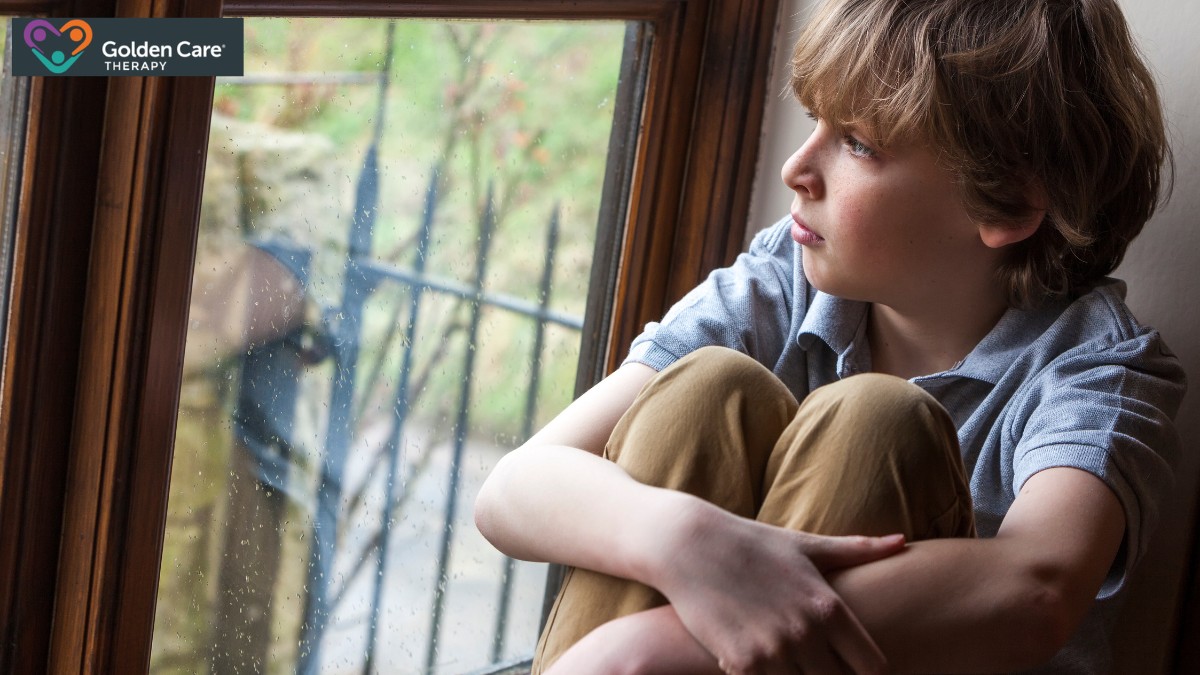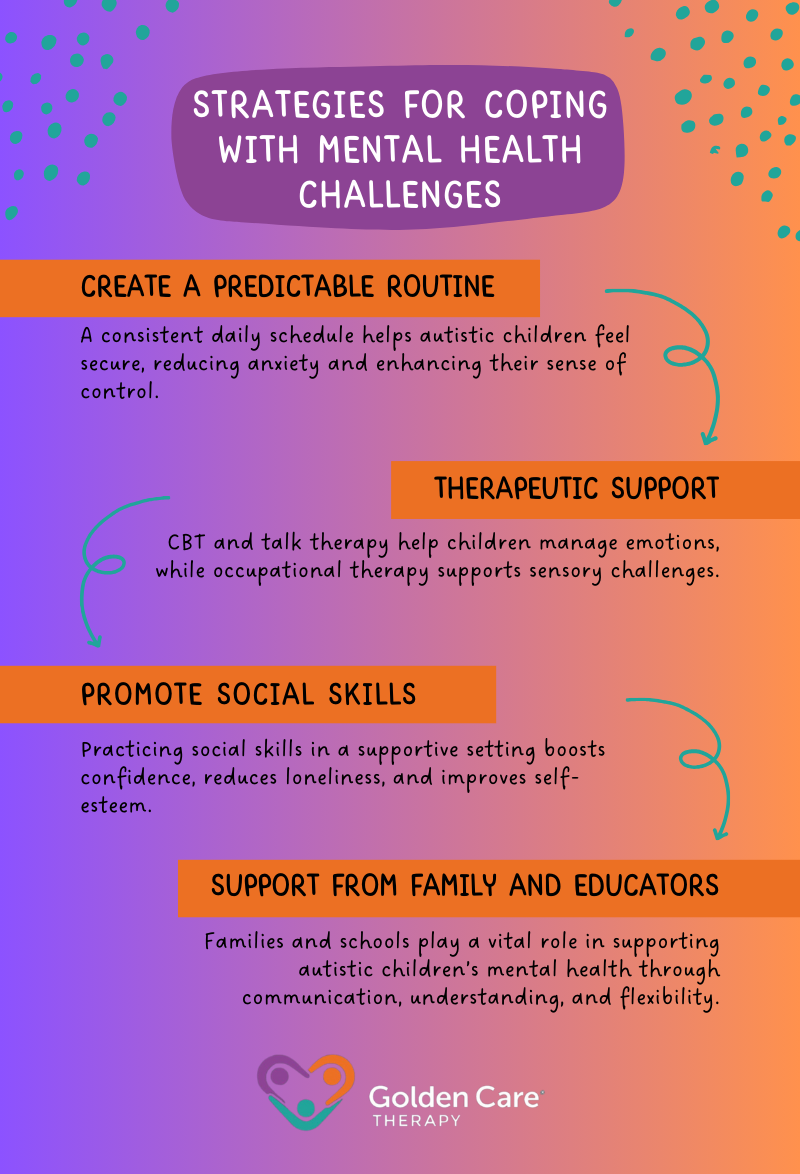Autistic children, like all children, have unique emotional and psychological experiences. While autism spectrum disorder can present itself in various ways, many autistic children face specific mental health challenges that can make everyday life more difficult.
These challenges are not necessarily a result of autism itself, but they often stem from the interaction between a child’s sensory sensitivities, social difficulties, and internal struggles with understanding the world around them.
As awareness of autism and mental health grows, it becomes increasingly important to understand the mental health challenges that many autistic children face and the ways to support them.
Without further ado, here are the most common mental health challenges that are faced by autistic children.
Anxiety and Stress
Anxiety is one of the most common mental health issues faced by autistic children. Many individuals on the spectrum experience heightened anxiety, often due to their sensitivity to sensory stimuli and difficulties with change or unpredictability.
Autistic children may find it hard to regulate their emotions, especially when they encounter overwhelming or unfamiliar situations. This could be something as simple as a routine disruption, a loud sound, or a new environment.
For these children, what might seem like a minor change to others can feel distressing and cause significant anxiety.
The internal struggle of managing anxiety can be exhausting. A child who cannot express their feelings may act out in ways that can be difficult to understand.
The pressure of trying to process so much sensory input, combined with the anxiety of facing new or unpredictable situations, can make daily life feel incredibly overwhelming for an autistic child.
Sometimes, anxiety can manifest in physical symptoms such as stomach aches, headaches, or even difficulty sleeping. As a result, many children may struggle to engage fully in social activities or school, further exacerbating their feelings of isolation or frustration.

Depression
Although depression is often overlooked in autistic children, it is a very real and significant concern.
Just like anxiety, depression in autistic children may be harder to detect because they may have trouble verbalizing their emotions. Depression can emerge due to a variety of reasons, including feelings of social isolation, bullying, or challenges with daily functioning.
The pressures of trying to fit in or meet expectations can be mentally exhausting.
Depression in autistic children can look different from how it presents in neurotypical children. Rather than the classic symptoms of sadness or hopelessness, depression in autistic children may manifest as irritability, withdrawal, or behavioral outbursts.
They may struggle to find enjoyment in activities that used to be pleasurable, and their motivation to engage in school or other social settings may decrease.
It’s important to recognize that depression in autistic children isn’t always expressed in the way many might expect, so it’s essential to stay vigilant and supportive.
Social Difficulties and Loneliness
Social isolation is another mental health challenge that many autistic children face.
Autistic children often struggle to make and maintain friendships, partly due to difficulties with social communication and interpreting social cues. They may have trouble understanding verbal and nonverbal language, making it difficult for them to engage in conversations or join group activities.
This can leave them feeling misunderstood and isolated.
The struggle to connect with peers can lead to feelings of loneliness and low self-esteem. When children try to fit in but face constant rejection or miscommunication, it can create a sense of emotional distance from others. The pressure to conform to social norms that don’t come naturally can also be mentally draining.
Unfortunately, this sense of isolation can perpetuate a cycle where the child feels even more anxious, withdrawn, and disconnected, further affecting their mental health.
For some children, these social difficulties can lead to avoidance of social situations altogether. They might withdraw from birthday parties, school events, or extracurricular activities, not because they don’t want to be part of them, but because the effort to interact with others feels too exhausting or uncomfortable.
Sensory Overload and Emotional Regulation Issues
Many autistic children experience sensory sensitivities that affect their ability to cope with their environment.
Sensory overload occurs when a child is exposed to too much sensory input, such as bright lights, loud noises, or strong smells. The intensity of these stimuli can overwhelm the child’s senses, leading to feelings of distress and emotional dysregulation.
For some children, sensory overload can trigger meltdowns or shutdowns, which are their ways of coping with the overwhelming input.
These sensory issues can be closely linked to emotional regulation difficulties. Autistic children often have challenges in managing their emotions, especially when they are overwhelmed.
Once a sensory overload occurs, they may have difficulty processing what they are feeling or how to express it, which can lead to frustration, anxiety, and, in some cases, aggression or withdrawal.
This emotional dysregulation is a mental health challenge in itself, as it makes it harder for the child to navigate the world around them without feeling constantly overwhelmed.
Obsessive-Compulsive Behaviors and Routines
For many autistic children, sticking to routines or engaging in repetitive behaviors brings a sense of comfort and stability. These behaviors can range from lining up toys, repeating certain phrases, or following rigid routines.
While this is a common part of autism, it can also lead to mental health issues if these behaviors interfere with the child’s ability to function in a broader social or academic context.
Obsessive-compulsive behaviors in autistic children can manifest as an overwhelming need to repeat certain actions or behaviors, sometimes at the cost of engaging with others or participating in daily activities. The child may become upset or distressed if their routines or rituals are disrupted.
This type of rigidity can limit their flexibility in handling changes and new situations, which can amplify anxiety, stress, or frustration.
Additionally, the insistence on sameness can limit a child’s ability to try new things, which in turn may hinder their development. This can become a mental health concern when the child becomes fixated on a particular behavior or routine and struggles to adapt to necessary changes in their life, such as in a classroom setting or at home.
Challenges with Self-Esteem
Autistic children are often at a greater risk for developing low self-esteem, especially if they frequently face difficulties in social interactions or are the target of bullying. The sense of being different or not meeting societal expectations can lead to self-doubt and a negative self-image.
Over time, this can undermine their confidence and make them less likely to take social or academic risks, which can impact their development.
The lack of understanding and empathy from others, as well as unrealistic expectations from parents, teachers, or peers, can contribute to a child’s feelings of inadequacy. This is especially challenging because many autistic children are aware, at least on some level, that they are different from others.
It can become difficult for them to navigate a world that doesn’t seem to understand or accommodate their needs, leading to frustration and sadness.
Strategies for Coping with Mental Health Challenges
Supporting autistic children through these mental health challenges requires understanding, patience, and proactive intervention. While each child’s experiences are unique, some general strategies can help mitigate the impact of mental health issues, such as:

The Bottom Line
Mental health challenges in autistic children are a reality that many face, but with the right support and intervention, they can be managed effectively.
Through understanding and a compassionate approach, these children can learn to navigate their world with greater ease and confidence. At Golden Care Therapy, we provide high-quality, personalized ABA therapy in New Jersey, Indiana, New York, Georgia, and Florida. Our dedicated team tailors each program to fit your child’s unique needs, ensuring meaningful progress in a supportive environment. Contact us today to learn how we can help your child thrive!
Sources:



